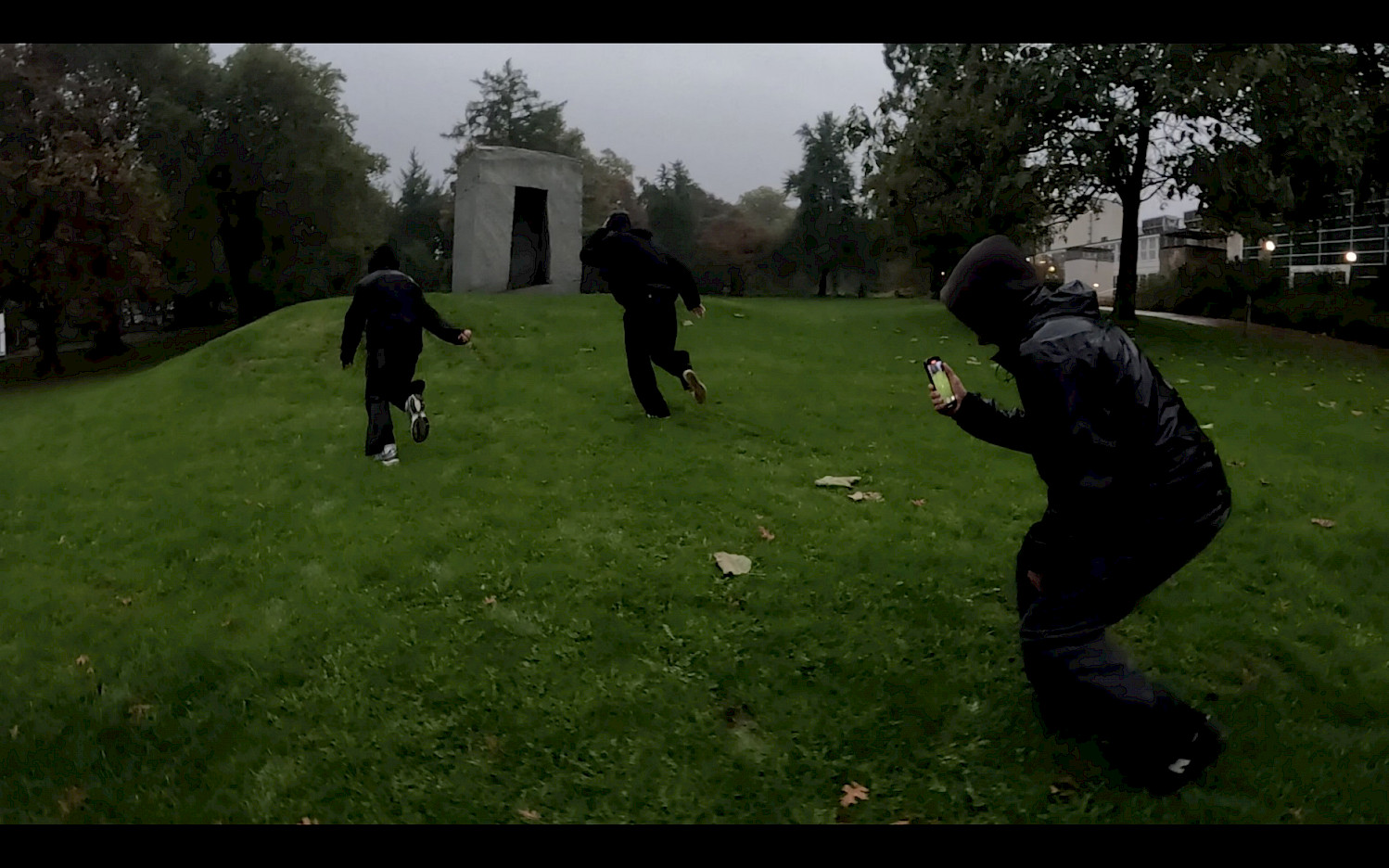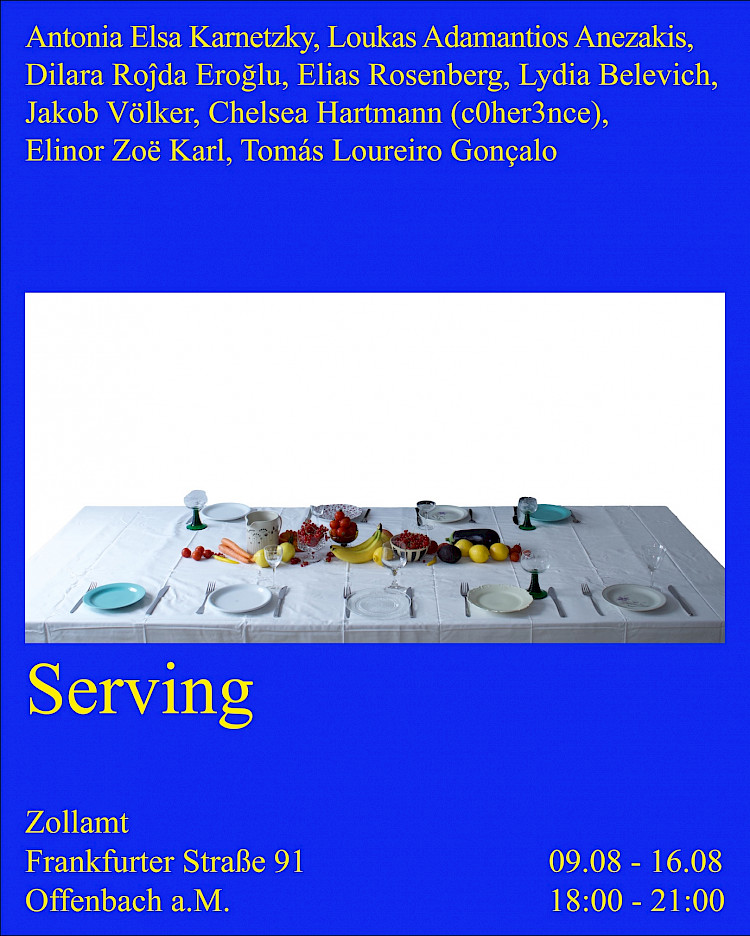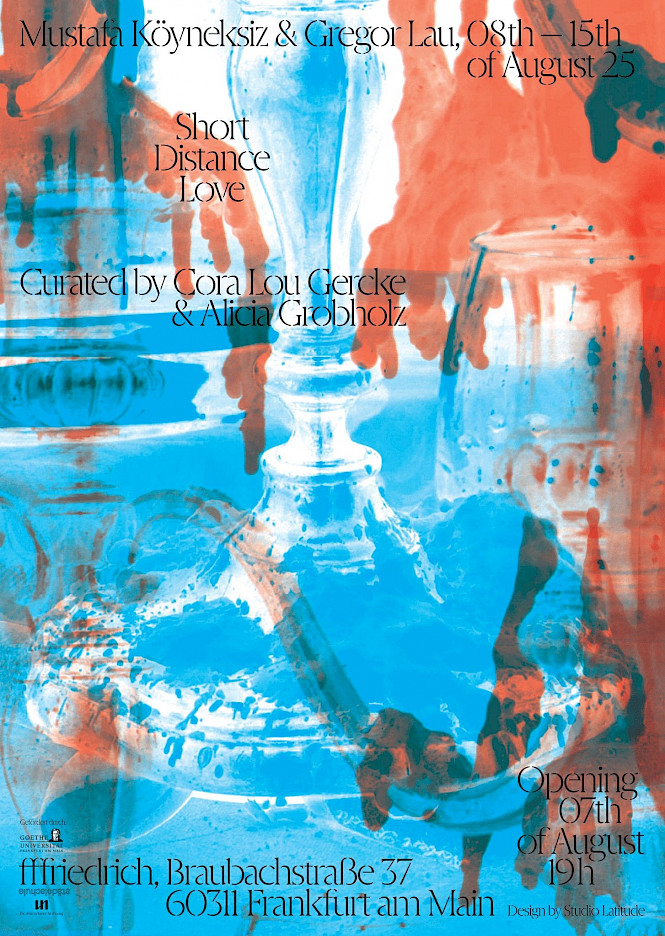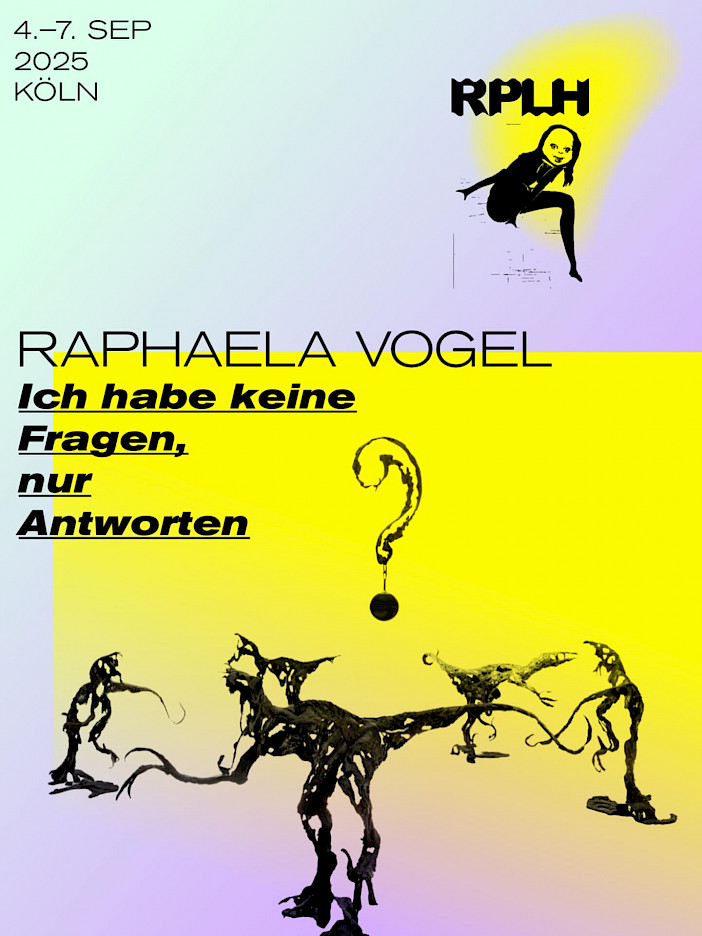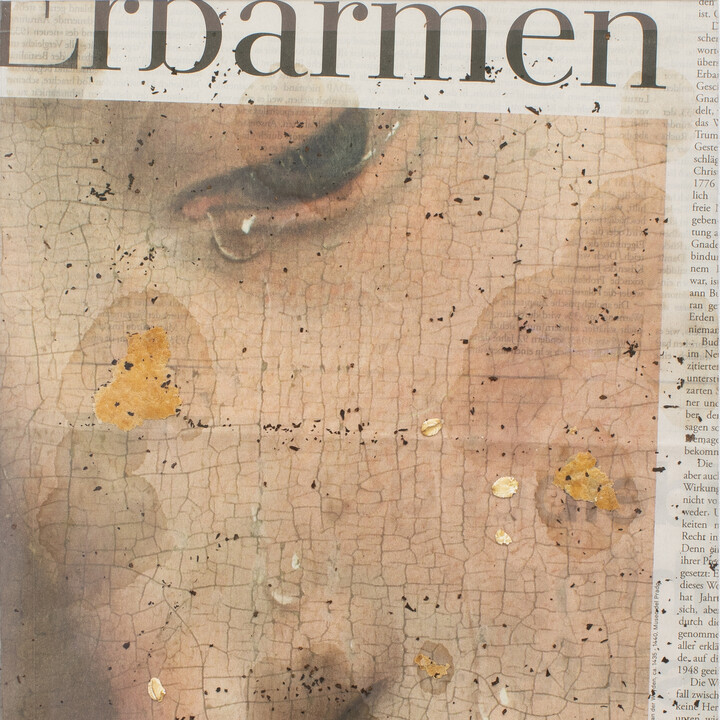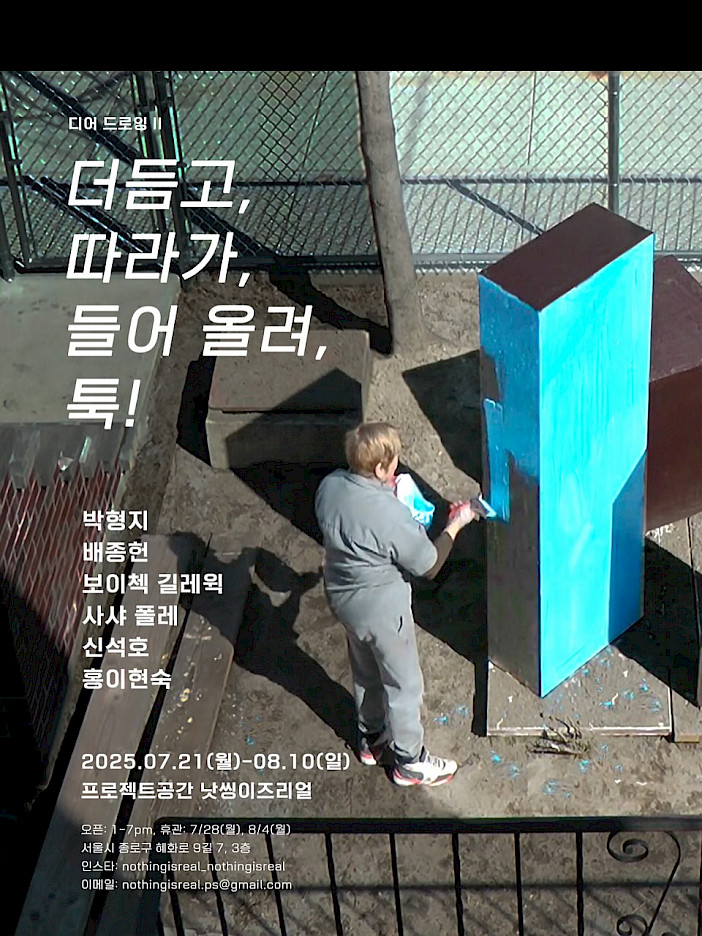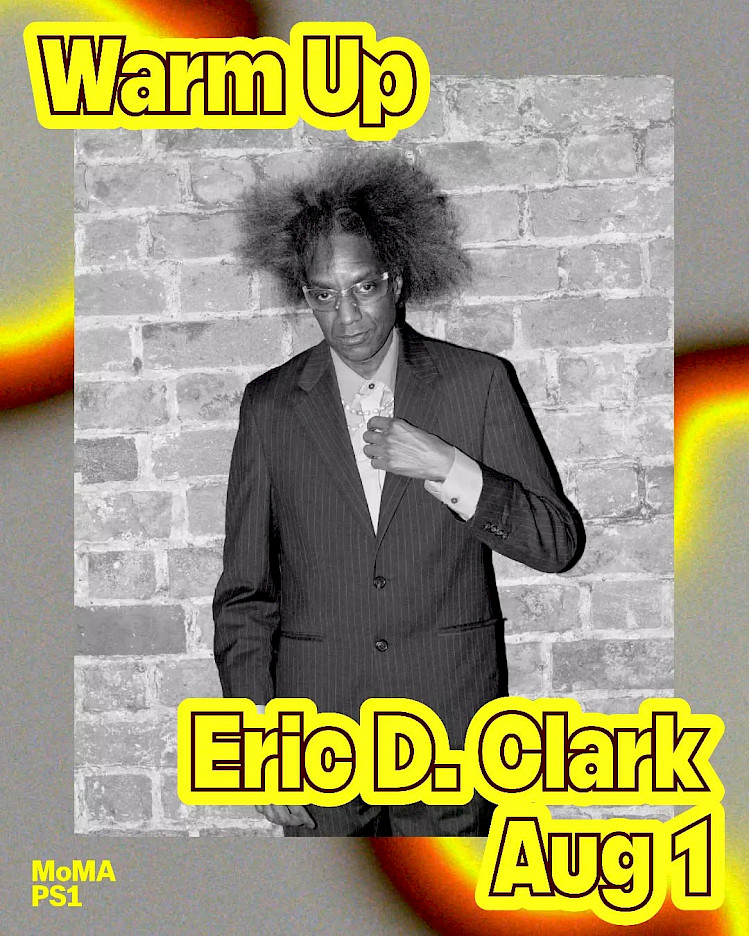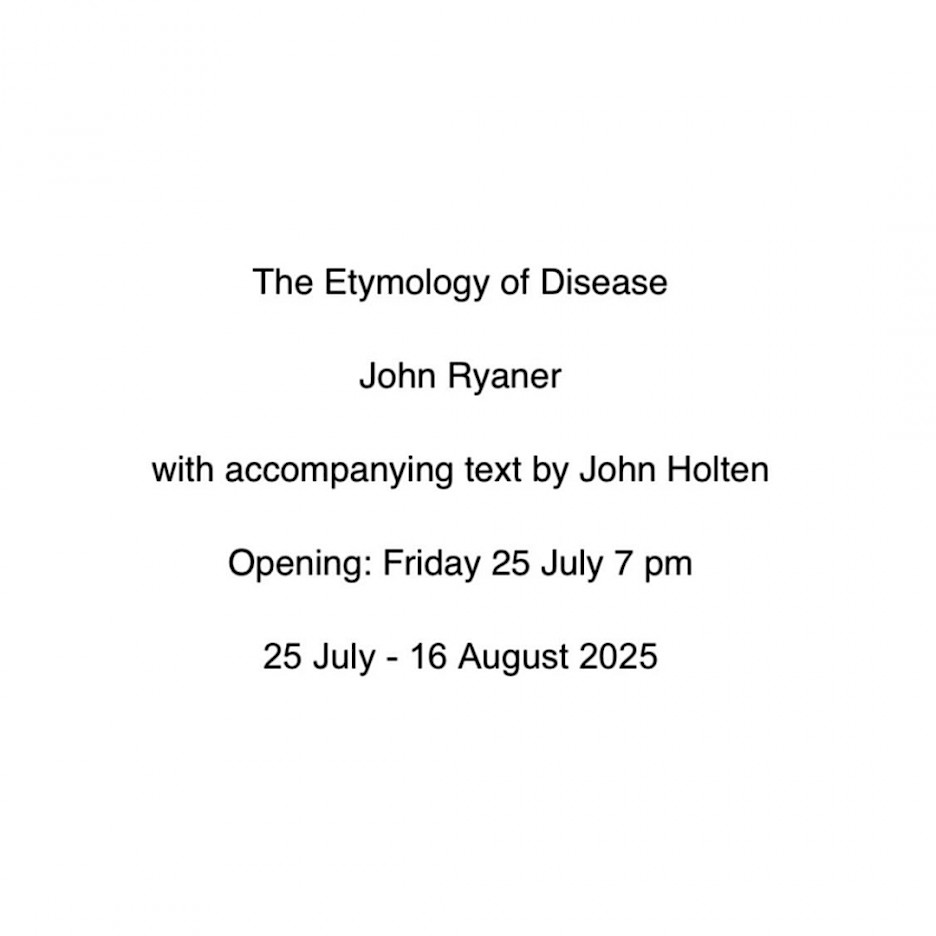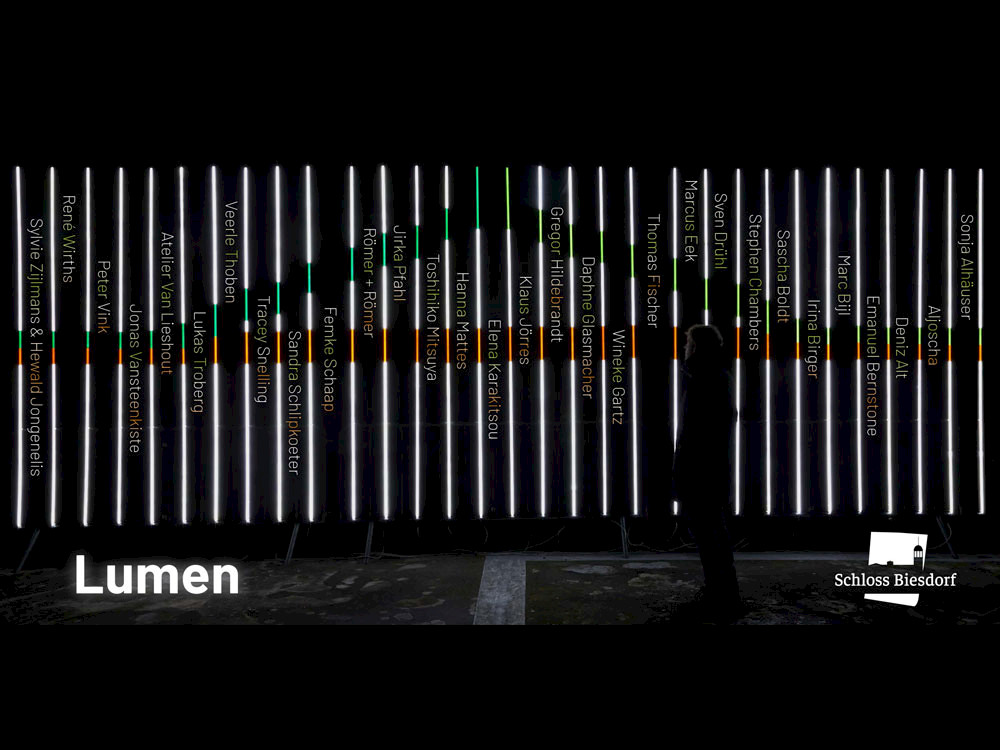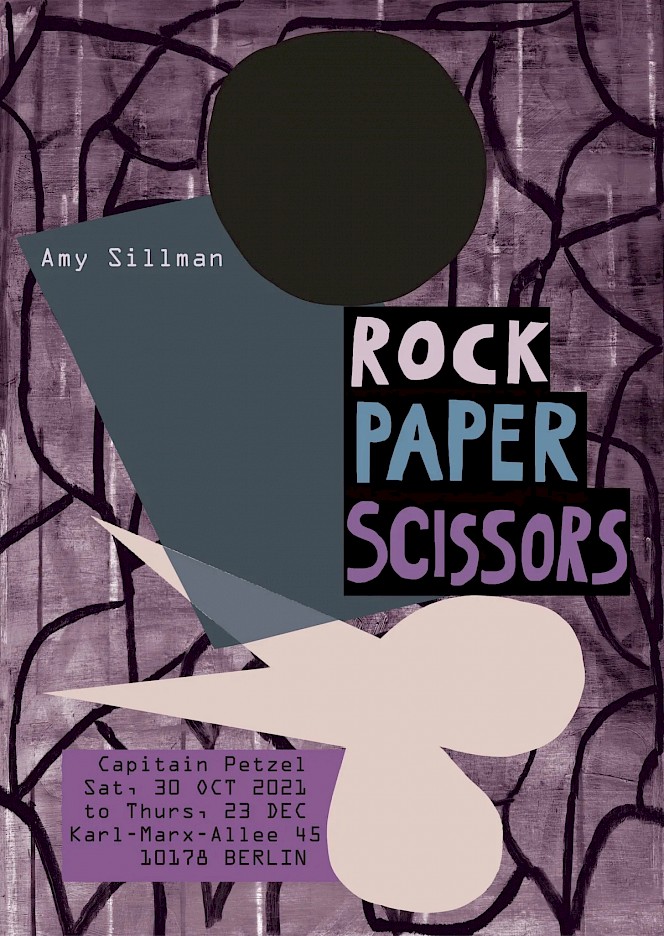Rock Paper Scissors
30 October - 23 December 2021
Opening: Saturday, 30 October 2021, 11 am - 7 pm
Artist Talk with Kerstin Stakemeier: Sunday, 31 October 2021, 1 pm
It’s all fun and games. It’s elbows out. This and that. Take no prisoners. Us versus them. The good, the bad and the ugly. You win some, you lose some. Rock, paper, scissors.
Amy Sillman’s artwork is a manifestation of struggle—she enacts and investigates the friction between materials and forms. So it’s pattern versus gesture, beautiful versus ugly, drawing versus painting, round versus straight, chromatic versus organic, figure versus ground, legible versus illegible, adding versus removing, breaking versus restoring. And all of it with feeling. A sense of the strange pleasure in persistence is palpable. A string of (somewhat trite) one-liners seems apt to begin to write about Amy Sillman’s practice, and the paintings and drawings she’s exhibiting in Rock Paper Scissors at Capitain Petzel, in part because the prospect of filtering these works into words feels perilously reductive, and the truism is at least emphatically so. On the other hand, perhaps they might introduce the sense of ineluctable truth—a kind of essential insight—that imbues Sillman’s painting. Encountering her work, I’m often confronted with the overwhelming realization, this is what it’s like to be a body in the world! This is what it’s like to be a person! Because it’s basically a jostle that’s awkward and frustrating and difficult and brimming with unexpected delight and fragile joy.
Sillman’s fragmented compositions get at all this in their shifts between stability and instability: a continuous interplay that is their primary structuring principle. The paintings in this exhibition emerged from an operating procedure—a series of steps that Sillman delineated as an experiment in clarifying the tensions that constitute her work in a set sequence. The rules are as follows: two layers of finding a body or a shape, two layers focused on color, two layers of completely ruining it and two layers of pattern. Steps nine and ten: wild cards; in total: ten layers and no more, save a bit of tinkering. Despite (or perhaps because of this system), the paintings are strikingly diverse. They also build upon ideas of the decorative and the domestic that have been focal points in Sillman’s recent work, developing from an ongoing series of flower paintings started in New York’s first pandemic lockdown last year. While Sillman’s work remains a campy, resistant, ardent response to gestural abstraction—take the painting South Street, 2021, for instance—this recent body of work reveals an increasing preoccupation with pattern and the possibilities that lie in interrupting it. Erupting it, even. Wrestling forms (the figure to the pattern’s ground) into it or from it.
Sussing out how to situate Sillman’s painting and drawings in language—asking, what do words have to do with it? —also broaches the linguistic logic that undergirds her oeuvre. She doesn’t consider her work painting, but rather drawing that aspires to the conditions of film or poetry. An astute writer and maker of zines, Sillman conceived of this exhibition as a syntactic space: imagine the walls as sentences, paintings punctuated by drawings mounted on board, as the tussling between these visual languages becomes a kind of grammar. How might a painting be informed by the sensation of turning a page? Or draw upon the motion of montage? This is, of course, no riddle that spells out what Sillman’s works are doing, as they remain, above all, unresolved. And it’s invigorating—and somehow urgent—to hold on to a space for painting that is unknown. Sillman culls the medium’s long history for a quality of drift and tosses her hat wholeheartedly in abstraction’s ring. A stance against the overly determined and clarified is a posture vis a vis painting (the last decade’s barrage of tightly-wound figuration comes to mind), but it’s also a subtler stance in favor of upheaval. A mode, perhaps, of imagining seismic shifts. And a willingness, as well as an invitation, to pay attention to what it’s like to be unmoored in the meantime.
— Camila McHugh
Capitain Petzel
Karl-Marx-Allee 45
D-10178 Berlin
T: +49 30 240 88 130
E: info@capitainpetzel.de
Opening Hours
Tuesday – Saturday
11 am – 6 pm
